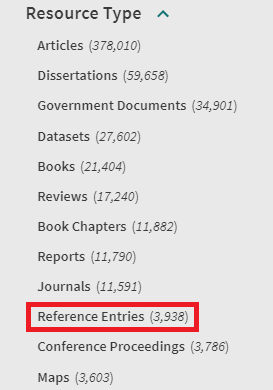If you’re having trouble deciding on a topic or question to research, consider some of the strategies below. You can also email or schedule an appointment with your subject librarian for help with finding a topic.
- List things you’ve seen, experienced, or learned about in your classes that raise questions for you. Could researching these questions help you answer them? Is there anything you’ve learned about that seems incomplete? Have any of the topics in class been personally relevant to your life or experiences?
- List problems you want to solve. What solutions make sense to you? You may be surprised to learn about other solutions people have used in the past, or how you can improve the feasibility of your ideas.
- Identify areas that you are passionate about. What areas would you like to learn more about? Is there anything that irritates or angers you? Is there anything you just love to talk about? Research can help you better understand these areas and gain new perspective.
Once you have a topic, be sure to generate a thesis, or a question about the topic that you intend to solve in your research. Below are some strategies to help you think of potential questions. Keep in mind that a good research question should have a manageable scope: try not to be too broad or too specific.
The 5 Ws
Brainstorm questions about your topic. Think about the 5 Ws - who, what, when, where, and why. These questions are important because they cannot have a simple "yes" or "no" answer. This is how you can begin to think about keywords for your topic. For example, if you think about "when," are you referring to the past, the present, or the future?
For example, when researching the vegetarian food culture in the United States, you could ask:
- Who are vegetarians in the United States? What populations are more likely to be vegetarian?
- What foods are vegetarians more or less likely to buy or grow?
- When did vegetarianism become popular in the United States?
- Where do vegetarians tend to shop for groceries?
- Why do people in the United States choose to become vegetarians?
Once you have a question in mind, think about what the answer might be (or do some background research to get a better idea). Then, think of how you are going to structure your paper and the types of evidence you will need to answer your research question. For example, if your thesis is “people in the United States choose to become vegetarians because they are concerned about the environmental impact of eating meat,” you can already get an idea that your paper will address 1) the environmental impact and 2) why people in the United States are concerned with it as opposed to other issues and 3) how vegetarianism relates to it.
Use reference sources
Another strategy for approaching your topic is to use reference sources, such as encyclopedias. By using reference sources, you will learn the scholarly language and background information that relates to your topic, in order to identify an interesting question and keywords. You can locate reference sources through Library Search using the “Reference Entries” resource type filter.

Create a concept map
A concept map involves taking a broad topic and visually breaking it down into smaller topics to find connections between concepts and create manageable areas of study for research questions. A concept map can also help you organize your ideas and generate search terms.
Watch this video by Appalachian State University to learn about using concept maps to help with research.
Additional resources
For more help with your research, see our page on search tips, or our guide to generating keywords. You can also view our guide to getting started on your research assignment.